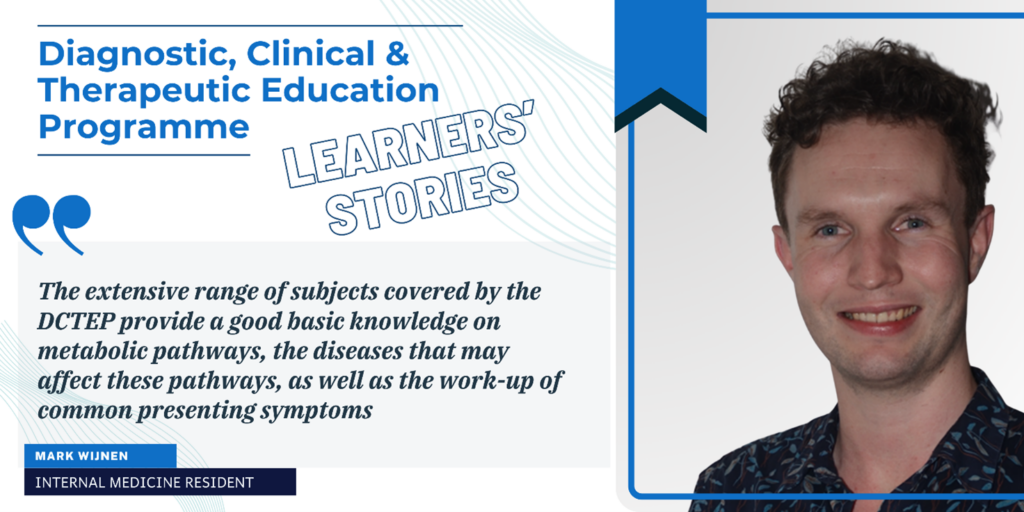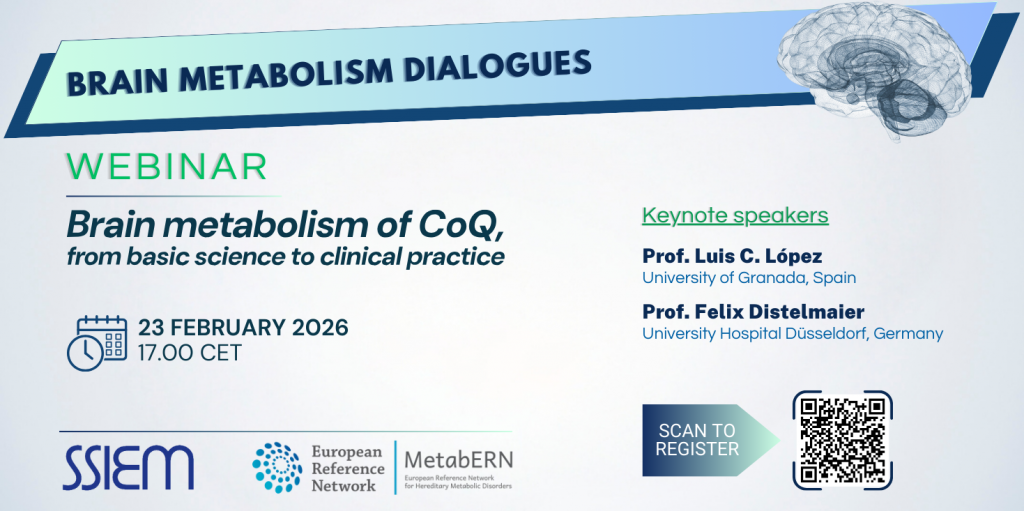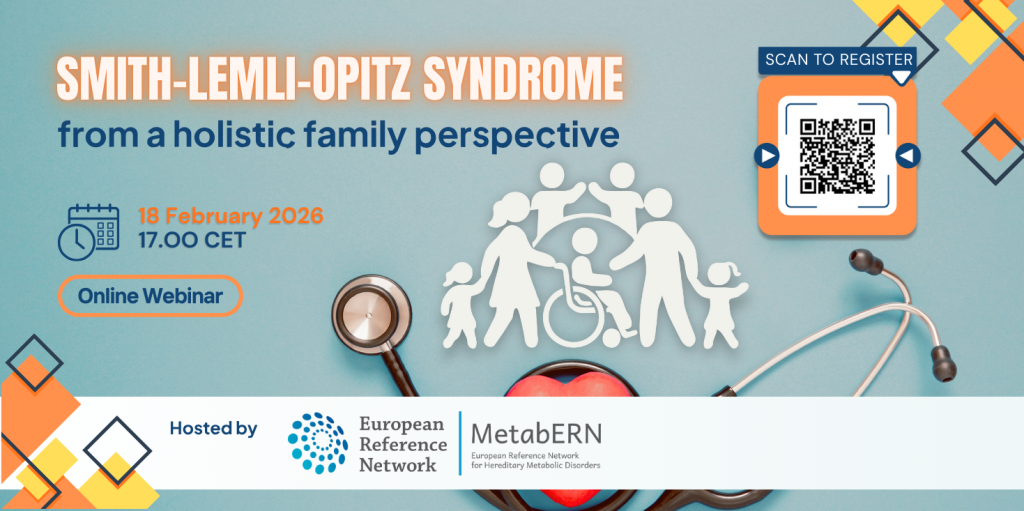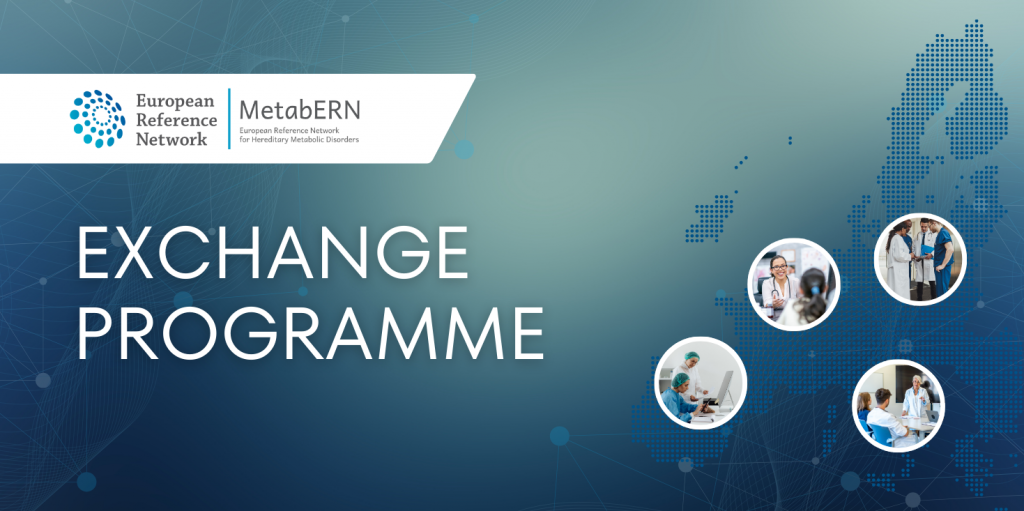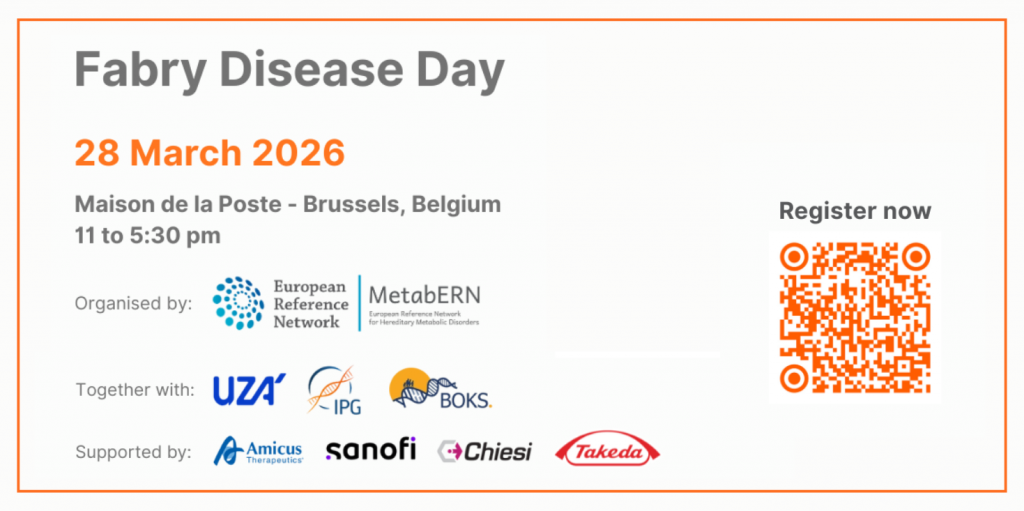Welcome to the DCTEP Learners’ Stories, the collection of interviews which brings forth the voices and experiences of learners who have successfully completed MetabERN’s recently launched Diagnostic, Clinical and Therapeutic Education Programme (DCTEP) on IMDs. The programme is now open to all healthcare and laboratory professional figures involved in the care and study of inherited metabolic disorders.
In this interview, we asked Mark Wijnen, an internal medicine resident in training at the Erasmus University Medical Center in Rotterdam, the Netherlands, what was his experience with the DCTEP. Mark, after completing his PhD on long-term endocrine and metabolic consequences of childhood cancer, has been awarded a fellowship in endocrinology and inherited metabolic diseases. After finishing his fellowship, he wishes to work as an internist specialised in the care of adults with IMDs.
Q: How did you find out about the DCTEP and what motivated you to enrol?
“I was searching for background literature on inherited metabolic diseases when I discovered the DCTEP on the MetabERN website. After reading the information regarding the course content, target audience and learning objectives, I thought that the DCTEP seemed suitable for my medical training because of the extensive range of subjects offered, clinical focus, and accessible format with webinars.”
Q: Which specific subjects, diagnostic or therapeutic approaches covered in the course did you find most valuable and what other topics would you like to see covered in the future updates of the programme?
“I think all the subjects in the DCTEP are very valuable for my clinical work. However, the basic session on clinical genetics was particularly valuable for me because it provided me with specific knowledge to conveniently counsel patients with a newly diagnosed inherited metabolic disease. Additionally, I really liked the combination of sessions on the physiology of metabolism and accompanying diseases (e.g., sessions on the lysosome and peroxisome and related storage diseases). Future topics that I would like to see covered are porphyria because we treat a lot of patients with porphyria in my hospital, as well as general approaches to the work-up of an adult patient with a suspicion of metabolic disease (e.g., recurrent rhabdomyolysis).”
Q: How did this course balance theoretical knowledge with practical applications in the medical field?
“In my opinion, there is a good balance between the theoretical knowledge and practical applications provided by the DCTEP. For example, the knowledge gained by the sessions on amino acid metabolism provides a good understanding for the ensuing sessions on hyperammonemia and urea cycle defects.”
Q: In what ways has the course enriched your scientific expertise, and how do you envision applying this knowledge in your research or medical practice related to inherited metabolic diseases?
“I think that the extensive range of subjects covered by the DCTEP provide a good basic knowledge on metabolic pathways, the diseases that may affect these pathways, as well as the work-up of common presenting symptoms (e.g., hypoglycemia and lactic acidosis). Due to the knowledge gained by the DCTEP, I feel more confident in diagnosing and treating my patients.”
Q: Overall, how do you describe your experience with the DCTEP and how likely are you to refer the course to a colleague?
“I really liked the DCTEP because I have learned a great amount of basic knowledge on a broad range of metabolic pathways, their associated disorders, as well as the work-up of common presenting symptoms of metabolic diseases. The courses are easy to follow due to the webinar-based structure and provide necessary knowledge without going into too much detail. Therefore, I recommend participating in the DCTEP to every physician with an interest in the wonderful field of metabolism and inherited metabolic diseases.”
Another inspiring DCTEP Learner Story comes to an end. We are extremely grateful to all the learners who agreed to share their experiences with the DCTEP and to all those who are currently attending the programme.
Stay tuned for more experiences shared by the learners of the DCTEP and help us reach out to all healthcare professionals and researchers interested in the IMDs field!
